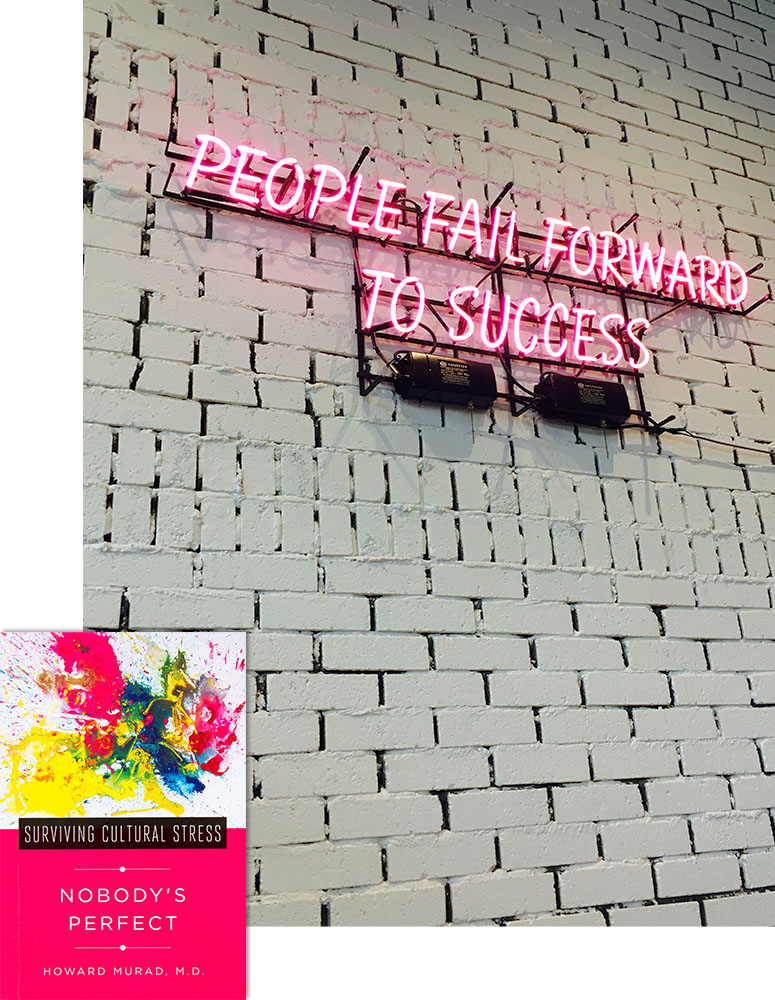Perfectionism leads to pessimism
One of the most valuable lessons my mother taught me was to “Be imperfect, live longer!” Her ability to laugh at her mistakes and to keep trying anyway taught me to do the same. She showed me that one could fail and try again—indefinitely!
As a result of her example, I’ve enjoyed several careers (pharmacist, physician, scientist, author, artist—to say nothing of the assorted jobs I had as a youngster). I’ve also taken up many new pursuits (from cooking to painting to ballroom dancing to karaoke singing), even in my so-called “retirement.” My mother’s example helped me to not take myself too seriously and to realize that trying new things inevitably involves “mistakes.” They are just part of the learning process. Life would quickly become pretty old and boring if we never let ourselves try anything new.
How I wish I could pass my mother’s example on to so many of my patients, friends, and colleagues who, unfortunately, let their perfectionism lead to pessimism. They have such high expectations of themselves that they are afraid to try anything they might not succeed at—immediately! They worry about “making a fool of themselves,” or what others might think of their performance. How sad to limit one’s opportunities in life for fear of what hypothetical “others” might think!
(Believe me, I looked pretty silly at first, while my wife taught me ballroom dancing. And I’m no great singer, but I still love karaoke—especially with friends. Even my cooking often involves spur-of-the-moment food combinations. Sometimes they taste good; sometimes they don’t. That’s the adventure of it!)
In addition to limiting their own life experiences, perfectionists often judge others harshly. After all, if they’re not willing to let themselves make mistakes, how can they overlook them in others?
It takes time and practice to become accomplished at most activities. Sure, there’s such a thing as “beginner’s luck,” but if you want to excel at a sport, a trade, a skill, or any kind of craft, you have to be willing to invest time and effort. (If it was effortless, we wouldn’t appreciate those who have mastered it.) So give yourself—and others—time to learn, to be imperfect, and to improve. So often, learning is in the doing—even if the early results are disappointing. Fail forward, until you achieve success!
I know many adults who were harshly criticized as children for the most understandable shortcomings: getting less than an A on a test or a report card; striking out or missing a catch in a Little League baseball game; “failing” to be popular in high school. As children, we don’t know that these criticisms say more about our parents’ insecurity than they do about us, so we take them to heart. We vow that we must be perfect in everything we attempt, even while a part of us realizes that this is simply not possible.
Criticizing young people in the early stages of their development so that they become fearful of failure is a tragedy. Failure shouldn’t be feared; it should be embraced as part of growth! That’s why I warn that, “Perfectionism leads to pessimism.” It’s only by accepting failure that we have the freedom to try new things, improve, and grow.
The champion boxer Sugar Ray Leonard is credited with saying, “If you’ve never known failure, you’ll never know success.”
And I also agree with these words from Ralph Waldo Emerson:
“Write it in your heart that every day is the best day in the year. He is rich who owns the day, and no one owns the day who allows it to be invaded with fret and anxiety. Finish every day and be done with it. You have done what you could. Some blunders and absurdities no doubt crept in. Forget them as soon as you can; tomorrow is a new day; begin it well and serenely, with too high a spirit to be cumbered with your old nonsense. This new day is too dear, with its hopes and invitations, to waste a moment on the yesterdays.”
So don’t let perfectionism lead to pessimism. Instead, be imperfect, live longer—and enjoy life more!
P.S. Check out my little book entitled Nobody’s Perfect for more on the benefits of imperfection.
